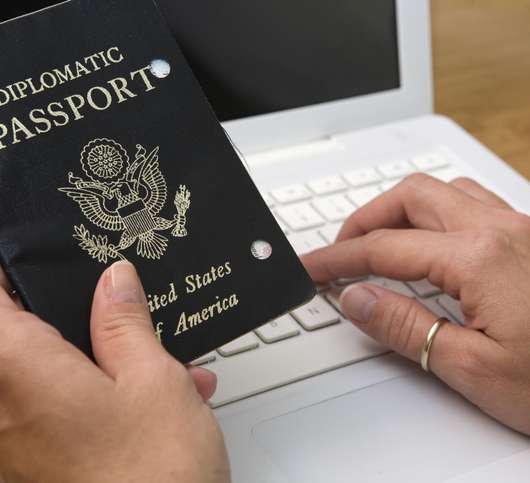Last week the U.S. government blacklisted Huawei and accused it of aiding Beijing in espionage. The U.S. government barred American companies from selling to Huawei without a U.S. government license. As a result, the world’s largest telecommunications equipment manufacturer and one of the most popular cellphone manufacturers, is cutting ties with Google. Months after Huawei announced that it has started developing its operations system and hinted that it might replace the Google-owned Android, Google has decided to fire back by enforcing the U.S. blacklist.
In a bold statement, Google fueled the ongoing USA-China trade war by announcing that the company has been forced to cease parts of its business partnership with Huawei and will stop licensing its Android mobile operating system to the Chinese tech company. The move was supposed to hurt Huawei’s cellphone business, but the Chinese tech giant took the news lightly. Immediately after Google’s announcement, Huawei replied that they are not even thinking of slowing down and will continue to develop a safe and sustainable software ecosystem. According to Chinese media, the company has already spent more than three years developing its OS platform – a system that will eventually replace Android as an OS in all future Huawei devices.
Google and Huawei’s new operating system
What will be Huawei’s next operating system? And did Google just kill Huawei’s dream of becoming the world’s top smartphone brand?
Google will allow Huawei devices to receive Android updates for the next three months. Around this time, it is expected for Huawei to roll out a new operating system. Some experts say that the new OS will have more than 25% market share on new phone sales within three years. According to multiple high-profile Chinese media sources, the new OS already has a name – it will be called HongMeng OS. The goal of the Chinese tech firm was to become the top smartphone brand by the end of next year. While the ban will undoubtedly slow down the market growth of Huawei, the Chinese manufacturer dream will most likely not be killed, but just slowed down.
Alphabet’s Google was not the only tech giant to enforce the U.S. ban – companies including world’s biggest chipmakers Intel, Qualcomm, and Broadcom, have announced that they will no longer be supplying Huawei until further notice. Huawei is the world’s second largest phone manufacturer and cutting ties with U.S. companies will undoubtedly hurt all involved parties – at the end of the day, no sales person wants to lose a big customer. Even though Huawei accepted the news relatively calm, the Chinese manufacturer will undoubtedly be negatively affected by the sanctions as it depends on many U.S. companies for components needed for Huawei’s 5G equipment.
The new 5G version of cellular mobile communications will be rolling out soon, and apart from the U.S., multiple other developed countries are actively prohibiting Huawei from the ability to deploy products in their territories. Over the last few years, Huawei has been blacklisted by several countries. Last year U.S. government agencies were banned from using equipment manufactured by the Chinese multinational technology conglomerate. A requirement in the Defense Authorization Act passed by Congress back in 2018, makes it practically illegal for government contractors and employees to use Huawei products. The U.S. government is concerned that Huawei, and ZTE, the fourth largest cell phone manufacturer in the U.S., are considered to be closely connected with the Chinese government. Soon after the U.S. passed the bill, Australia also enforced a ban over Huawei and ZTE, preventing them from providing 5G technology for the country’s wireless networks. New Zealand followed the example terminating their relationship with Huawei. Canada is likely to ban Huawei too, and are still holding Huawei’s CFO under house arrest. With this decision, only one country out of the Five Eye anglophone intelligence alliance remains in a relatively good relationship with the Chinese telecommunications manufacturer. However, this may soon change as UK’s prime minister Theresa May is currently under mounting pressure to the Chinese tech giant.









19 comments
How will this affect us who already have one of these mobiles?
“In March, Richard Yu, CEO of Huawei’s consumer products division, told a German newspaper that Huawei had prepared its own operating system in case it lost access to Android. “That’s our plan B,” Yu said. “But of course we prefer to work with the ecosystems of Google and Microsoft.” The company has stockpiled enough chips to keep its phone business running for months, Bloomberg reports.”
https://www.npr.org/2019/05/20/724910121/after-trump-ban-huawei-phones-will-lose-access-to-google-software
Nog zoiets nu Huawei op de zwarte lijst staat kunnen de Amerikaanse- en verwante chip fabrikanten niet meer hun gemodificeerde chips, die vol spyware zit voor voornamelijk de Amerikaanse geheime dienst, in de smartphones van Huawei in laten bouwen door Huawei zelf, dit klinkt als het paard van Troje, Trump heeft de plannen van zijn eigen dienst de nek omgedraaid, onbedoeld, waarschijnlijk door vergevorderde vorm van dementie. Misschien een geluk voor de Chinezen of ze hebben het al ontdekt, dat zal het zijn. Want dan zal China en niet de VS het slachtoffer zijn van spionage. En nu moeten de Chinezen hun eigen chips ontwikkelen met alle gevolgen van dien, nu kunnen deze vol spyware zitten. Dit verhaal gaat goed de richting op van Alfred Joseph Hitchcock. Voor een beter begrip over de werking van chips, deze werken met nulletjes en één tjes. Er zijn ontzettend veel combinaties van 0 en 1 als je een rij van 8 bits hebt is de combinatie 2^8 is 256 dat zijn dus 256 aansturingen, herkennen jullie nog dat het nieuwe jaar 2000 angstig was, omdat men niet wist of het op 0000 of 2000 zou aftellen raar dat men toen niet wist hoe de chip is ingesteld. Nu kunnen ze het manipuleren. Dus elke chip in je auto/smarttv of smartphone of printer etc..etc..kunnen ze manipuleren, je krijgt 3 jaar garantie voor je auto en 1 jaar tv of printer en na de garantieperiode laat je apparatuur het afweten, dat wordt op een gegeven moment verdacht dus doen ze een paar maanden of een jaar boven op. dus moet je weer een nieuwe kopen. Ja de productie moet draaien…………..engerds, die fabrikanten.
If Huawei does in fact have “close ties” with the Chinese government, who’s to say that Huawei won’t embed spyware in their new OS at the request of the Chinese government? Seems to me to be an easy way to gather top secret information from other governments,
Probbably.
Good point.
I know this will fuel a rapid expansion and under pressure Huawei will try at all cost to down play the sanctions by the US. The US should watch out for a technology boom from this tech giant since this is what a human brain is wired to do.
So chinese discovered SJW & LGBTQ ? Damn , we are lost …
What about the millions of customers around the world who purchased Huawei phones ? I suppose they don’t count. You spent all your money on a Huawei smart phone ? Tough luck mate ! Cough up for an Apple Iphone – ALSO MADE IN CHINA !!!
Goed opgemerkt en bij die iPhones en andere electronica van Chinese makelij heb je zeker geen spyware, waar de Chinezen kunnen bespioneren. Het is een hetze tegen Huawei omdat de westerse wereld, voornamelijk de US die geen antwoord heeft op de toenemende economische en technologische expansie van de Chinezen. Als je de naam Trump hoor dan weet dat die gelijk staat aan nationalisme tot fascisme toe America first en uiteraard zijn zakken het eerst vullen dan de rest. En niet te vergeten dat de Amerikaanse overheid in het verleden en misschien nog de hele wereld aan het bespioneren was/is tot een enkel persoon, dit door een Amerikaan, Edward Snowden, aan het licht is gekomen als klokkenluider, die je moet belonen en die nu ondergedoken zit in Rusland. En dacht je dat de wereld dat erg vond nee! Want ze zijn er bekend mee door economische straf sancties tegenover moet plaatsen heel raar dat de rest van de wereld zo achter die Amerikanen lopen. Als ze verbod opleggen,de hele wereld meegaat doen. En de VS erkend geen enkele organisatie zowel het internationale (europesche) hof van justitie in Den Haag niet. Denken jullie, de wereld, daar maar eens over na.
Aub probeer het niet te vertalen in het Engels want dat klinkt van geen kanten.
I do not understand. Will we tha have Huawei mobile phones and tablets be able to go online at all after these three moths be able to make calls and use the tablet as usual with no restrictions?
“In March, Richard Yu, CEO of Huawei’s consumer products division, told a German newspaper that Huawei had prepared its own operating system in case it lost access to Android. “That’s our plan B,” Yu said. “But of course we prefer to work with the ecosystems of Google and Microsoft.” The company has stockpiled enough chips to keep its phone business running for months, Bloomberg reports.”
https://www.npr.org/2019/05/20/724910121/after-trump-ban-huawei-phones-will-lose-access-to-google-software
“In March, Richard Yu, CEO of Huawei’s consumer products division, told a German newspaper that Huawei had prepared its own operating system in case it lost access to Android. “That’s our plan B,” Yu said. “But of course we prefer to work with the ecosystems of Google and Microsoft.” The company has stockpiled enough chips to keep its phone business running for months, Bloomberg reports.”
https://www.npr.org/2019/05/20/724910121/after-trump-ban-huawei-phones-will-lose-access-to-google-software
I am still waiting for evidence? USA can not HIDE behind – We don’t have to tel you –
Typical USA, everybody should trust them and only them. Germany has NOT found evidence of spying – In fact, currently, there is NO evidence.
Lets say it is true, how is this different from the USA spying on everybody? Or my own government?
Well said.
We’re glad you enjoyed it! We appreciate the feedback and we will continue to bring you useful content in the future.
All the best,
Panda Security
By the way, who guarantees there are no ‘ties’ between Google and Microsoft and the American Government? Makes me only a little bit less uneasy…
The US just don’t like anybody getting one over them.To see Huawei getting to the point of Phone sales going above the over priced Iphone.
China does everything better in Tech and at half the price.
What would they gain from spying on the US.
Companies are scared of losing ground to China,there is absolutely no proof of spying.